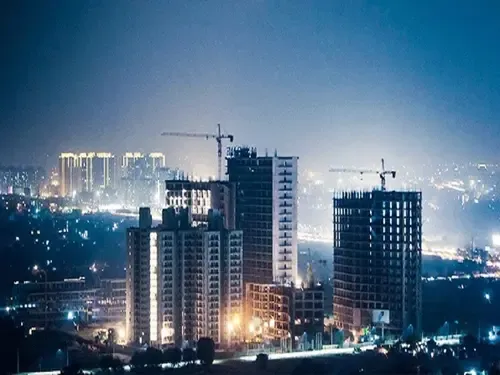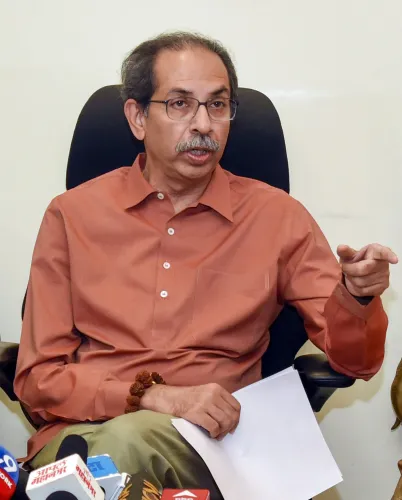Will India’s Real Estate Sector Reach $10 Trillion by 2047?

Synopsis
Key Takeaways
- India's real estate sector is on track to reach $5-10 trillion by 2047.
- Government reforms are significantly influencing growth.
- Urbanization and demographic shifts are pivotal for the residential market.
- Infrastructure improvements will facilitate new economic zones.
- Technological advancements are crucial for emerging asset classes.
Gurugram, Nov 6 (NationPress) The real estate sector in India is on the brink of an extraordinary transformation, with forecasts indicating growth from approximately $0.3 trillion today to an astonishing $5-10 trillion by the year 2047, as per a recent Colliers-CII report unveiled on Thursday.
This ongoing growth positions real estate as a pivotal element of India’s economic advancement, potentially accounting for 14–20 percent of the GDP by 2047, the report highlighted.
Titled "Real Estate @2047: Building India’s Future Growth Corridors", the report outlines both immediate trends and overarching growth themes across key segments—residential, office, retail, industrial & warehousing, and new asset classes such as senior living, co-living, and data centres.
These trends are largely driven by robust government initiatives and policy reforms, alongside significant demand factors including rapid urbanization, demographic changes, infrastructure development, technological advancements, and a focus on sustainability. Collectively, these growth catalysts are generating a multiplier effect, enhancing employment opportunities and demand across various real estate sectors, while attracting institutional investments and unveiling new growth corridors nationwide, the report noted.
Within the real estate landscape, the residential sector is anticipated to experience the most significant growth due to swift urbanization and changing demographics, particularly in affordable housing, senior living, and co-living segments. At the same time, the commercial and industrial sectors will benefit from improved infrastructure, digitalization, and environmental mandates, facilitating the decentralization of office locations and manufacturing hubs in Tier II & III cities. Concurrently, advancements in technology, especially in AI, will propel the expansion of data centres and smart city developments, the report elaborated.
During a CII event, Harleen Kaur, Deputy Secretary at the Union Ministry of Road Transport and Highways, stated: "India’s infrastructure growth is redefining the real estate framework, unveiling new growth corridors and transforming Tier II & III cities. The interplay between real estate and infrastructure will be crucial, as expressways and industrial corridors continue to improve connectivity—altering land utilization in surrounding areas, accelerating urbanization, and fostering economically viable hotspots."










